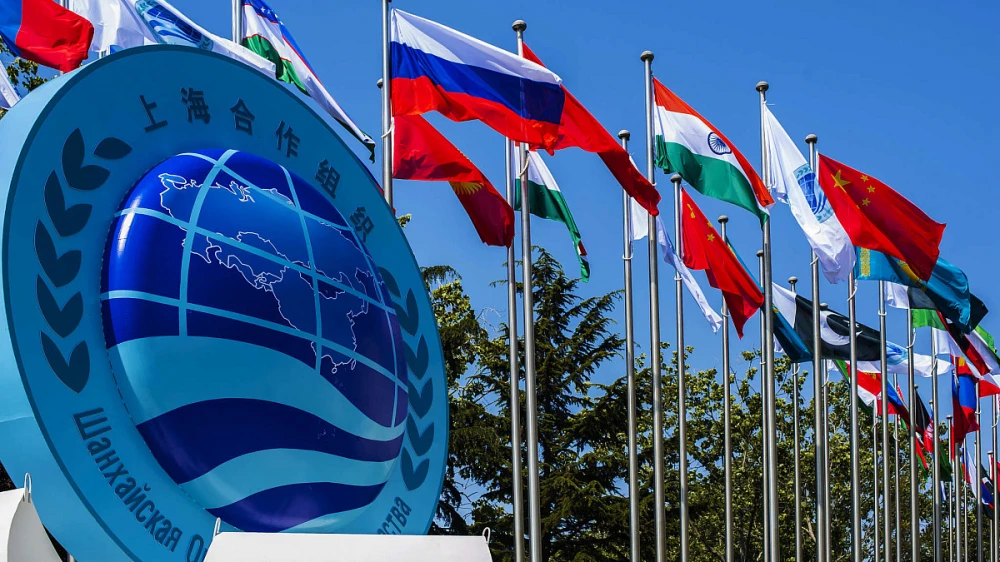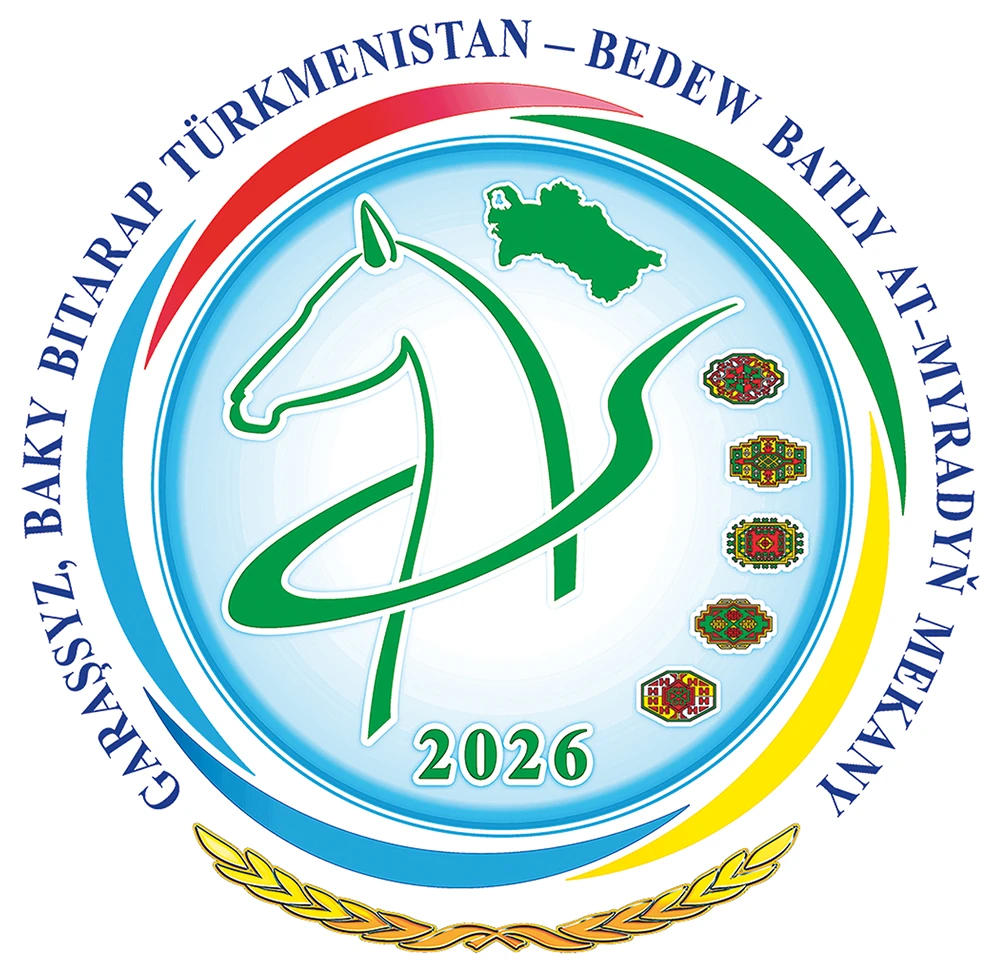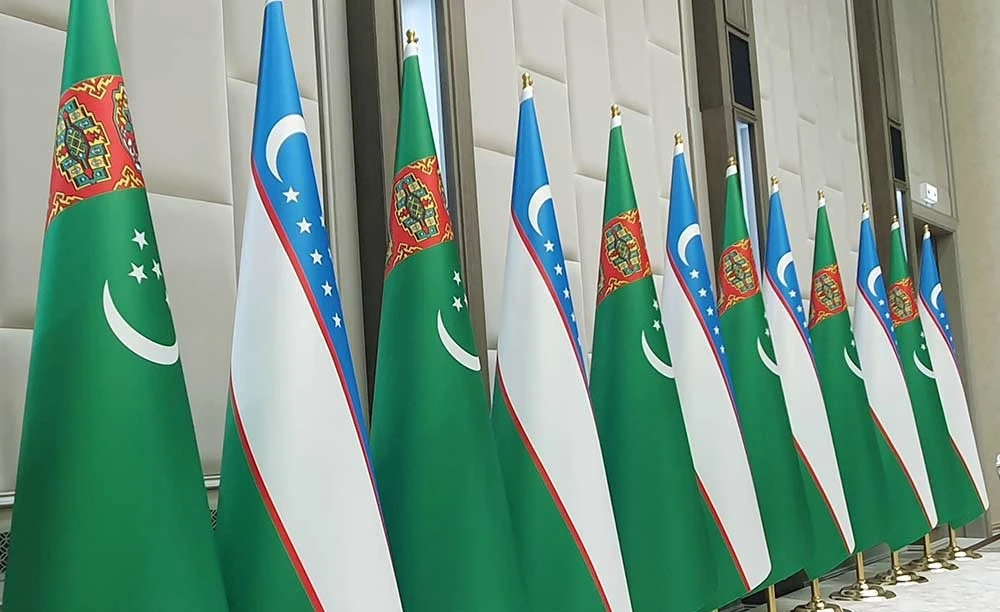
03/07/2024
1361
SHANGHAI COOPERATION ORGANIZATION: HISTORY OF SUMMITS AND ROLE IN REGIONAL SECURITY
The Shanghai Cooperation Organization (SCO) is a multilateral association founded in 2001 by the leaders of China, Russia, Kazakhstan, Tajikistan, Kyrgyzstan and Uzbekistan. The organization’s activities are aimed at ensuring security and maintaining stability in the vast Euro-Asian space, at jointly confronting new challenges and threats, and strengthening trade, economic, cultural and humanitarian cooperation.
The SCO is an intercivilizational organization that eliminates the possibility of a conflict of civilizations in the region of its responsibility by reinforcing mutually beneficial cooperation, preventing of confrontation and conflict, and maintaining equal and indivisible security. Moreover, the organization aims to build a just polycentric model of the world order that meets the interests of all and every state on the firm basis of the norms of international law and the principles of mutual respect and consideration of each other’s interests.
Adhering to the principles of openness, non-targeting and non-formation of alliances, the SCO actively and consistently develops dialogue, exchanges and cooperation. In addition, the SCO stands for strict observance of the purposes and principles of the UN Charter, primarily equality and sovereignty of states, non-interference in their internal affairs, mutual respect for territorial integrity, inviolability of borders, non-aggression, peaceful settlement of disputes non-use of force or threat of force, as well as other generally recognized norms of international law aimed at maintaining peace and security, the development of cooperation between States, the strengthening of independence, ensuring the right to determine their own destiny and the path of political, socio-economic and cultural development.
The twenty-fourth SCO Summit will be held on July 3-4, 2024 in Astana in the SCO+ format with the participation of heads of state and government of 16 countries. The event will be attended by the leaders of Belarus, Mongolia, Azerbaijan, Qatar, the UAE, Turkey and Turkmenistan as observers and dialogue partners. A number of international organizations will also be represented at a high level. The main agenda of the summit, which will be held under the motto “Strengthening multilateral dialogue: striving for sustainable peace and development”, will be the strengthening of the SCO’s role in solving urgent international and regional problems.
According to the data, the leaders intend to focus primarily on international trade and the economy to ensure stability. The summit will also discuss issues of regional security, infrastructure, energy, environment, health, tourism, education, digitalization, transport and logistics.
Following the summit, it is planned to adopt more than 20 documents in various fields, including the Astana Declaration, which will reflect the SCO’s position on current international and regional problems and promising research, as well as the SCO Development Strategy until 2035 and the SCO Energy Cooperation Development Strategy until 2030.
Moreover, a decision on Belarus’ full membership in the SCO is expected.
Brief history of summits of the Shanghai Cooperation Organization
According to the SCO, the organization currently consists of 9 member states, 3 states have observer status and 14 states are dialogue partners. Turkmenistan participates in the SCO summits as an honorary guest.
The first SCO summit was held on June 14-15, 2001 in Shanghai, following the summit, a Declaration on the establishment of the SCO was signed by the heads of six states of China, Russia, Kazakhstan, Kyrgyzstan, Tajikistan and Uzbekistan.
The second summit was held on June 7, 2002 in St. Petersburg, where the SCO Charter was adopted (entered into force on September 19, 2003) - the basic statutory document fixing the goals and principles of the Organization, its structure and main activities.
The third summit was held on May 28-29, 2003 in Moscow, where the SCO Secretariat with headquarters in Beijing and the Regional Anti-Terrorist Structure (RATS) were established. The heads of the participating countries touched upon the issues of combating terrorism and extremism. Among the 30 documents signed at that time were provisions defining the functioning of the organization’s organs — regulations on the Council of Heads of State, the Council of Heads of Government and the Council of Foreign Ministers. In addition, following the results of the Moscow summit, the SCO’s organizational period ended, and on January 1, 2004, it began to function as a full-fledged international structure with its own working mechanisms, personnel and budget.
The fourth summit, on June 17, 2004, a regular meeting of the SCO Council of Heads of State was held in Tashkent. By the decision of the Council of Heads of SCO member States, following the results of the Tashkent summit, the Regulation on observer status at the SCO was approved. Mongolia was the first country whose application for such a status was granted.
In addition, it is worth to note that on December 2, 2004, the United Nations General Assembly unanimously approved a resolution granting observer status to the Shanghai Cooperation Organization. SCO representatives took part in high-level UN meetings with regional organizations, and the Organization was represented at other UN events.
The fifth SCO Summit, held in Astana in 2005, in addition to a new package of treaties and conventions, a Declaration was signed by the heads of the member states of the Shanghai Cooperation Organization, which recorded further consolidation of efforts and strengthening of coordination. Also at the Astana summit, three states became SCO observer countries: India, Iran and Pakistan. It is worth noting that before the Astana summit, in April 2005, a Memorandum of Understanding was signed in Beijing between the SCO and CIS secretariats. A draft Memorandum of Understanding has been developed between the SCO and ASEAN secretariats. Working contacts are maintained with the OSCE, the CSTO and the OCAC.
The sixth summit of the SCO Heads of State was held on June 14-15, 2006 in Shanghai. During the summit, the heads of state put forward a program for the further development of the organization and signed a statement on international information security. At that time, Russia put forward an initiative to create the SCO Energy Club as a mechanism uniting producers, consumers and suppliers of energy resources, this idea was supported by the other heads of state.
The seventh SCO Summit was held on August 16, 2007 in Bishkek, where the heads of state signed the “Treaty on Long-term Good-Neighborliness, Friendship and Cooperation of the Shanghai Cooperation Organization member States” and the “Bishkek Declaration of the Heads of the Shanghai Cooperation Organization member States” following the summit.
The eighth SCO Summit was held on August 28, 2008 in Dushanbe, following which the Dushanbe Declaration was signed. Priority areas of development and cooperation within the SCO were considered, as well as international and regional issues were discussed. Moreover, an agreement on combating illicit trafficking in weapons, ammunition and explosives was signed, as well as a memorandum “On the foundations of partnership relations between the SCO Interbank Association and the Eurasian Development Bank”. Bilateral interbank agreements were also signed.


